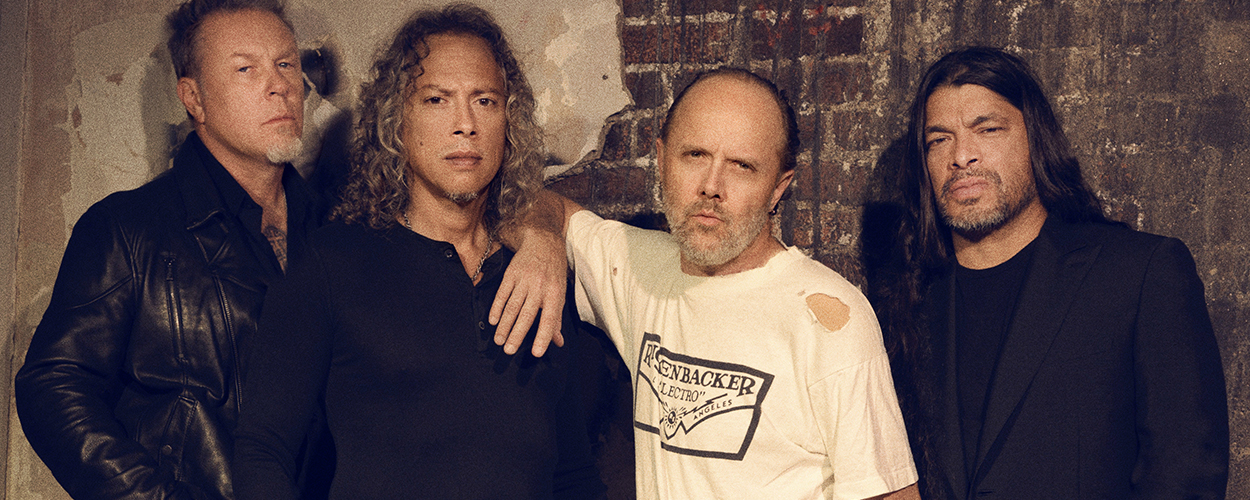This website uses cookies so that we can provide you with the best user experience possible. Cookie information is stored in your browser and performs functions such as recognising you when you return to our website and helping our team to understand which sections of the website you find most interesting and useful.
And Finally Artist News Business News Digital Labels & Publishers Live Business
Twitch replaces Metallica performance with twee stock music
By Andy Malt | Published on Monday 22 February 2021

Metallica’s performance as part of a livestreamed gaming convention on Friday was rudely interrupted for some viewers by an incongruous glockenspiel and accordion duet. As hacker pranks go, it would have been a pretty good one. Although this seems to have actually been the result of Twitch’s ongoing battle with the music industry over its general lack of music licences.
The band were booked to perform as part of the opening of this year’s BlizzCon – a conference for players of Blizzard Entertainment video games, such as ‘World Of Warcraft’ and ‘Diablo’. However, as they tore through the opening bars of ‘For Whom The Bell Tolls’, Metallica’s sound dropped out and was replaced by some twee stock music.
Only a portion of viewers were left sitting through this confusing censorship though. It was on the Twitch-controlled TwitchGaming channel – which was streaming the event – where Metallica’s sound was cut. However, the feed on Blizzard’s own Twitch channel remained untouched, as did the stream on the gaming firm’s official YouTube channel. So seemingly the Metallica editing was an act of caution on Twitch’s part, on a channel it was promoting on its front page at the time.
Twitch, of course, has been having trouble with all the music on its platform over the last year. As livestreaming has boomed during the pandemic, the music industry has started paying much more attention to unlicensed music in such webcasts, calling on the Amazon company to get itself licences for that music, while also issuing takedown notices against some videos that contain uncleared tunes.
It’s not the first time Twitch has been hit with takedown notices from the music industry – there was a flurry in 2018, and they have continued to some extent since – but last year the takedowns and the criticisms from record companies and music publishers dramatically increased. The fact that Twitch has been seeking to diversify its community of creators beyond gamers and is therefore directly courting musicians also contributed to such moves.
As the frequency of music-related takedown notices increased, Twitch’s userbase became vocally annoyed and the platform was forced to respond publicly. In a blog post in November last year, it said that it was trying to build a better system to deal with copyright claims, while directing creators to an archive of cleared music it has been amassing.
Twitch also argued that negotiating licences that would allow all and any music to appear on its platform could be difficult or impossible. It claimed that – while it could seek blanket licences from labels and publishers – any licensing talks would be hindered by the fact it is unlike other digital services, because most of the videos on its platform don’t include music.
However, the boss of the US National Music Publishers Association, David Israelite, took issue with that particular claim – and others in Twitch’s blog post – pointing out that YouTube hosts plenty of videos that do not contain music and still manages to agree licences for those that do.
As of now, Twitch is still without licences from most labels and publishers. When signing up to perform at a virtual conference, Metallica were presumably aware that their music would be made available online as a result, and you’d think clearances would be part of the booking. Though that doesn’t mean other parties with an interest in their music were necessarily on board. Whether Twitch checked any of that ahead of time is unclear, although it’s interesting that it only censored its own channel.
Watch the moment Metallica had their sound replaced here:





